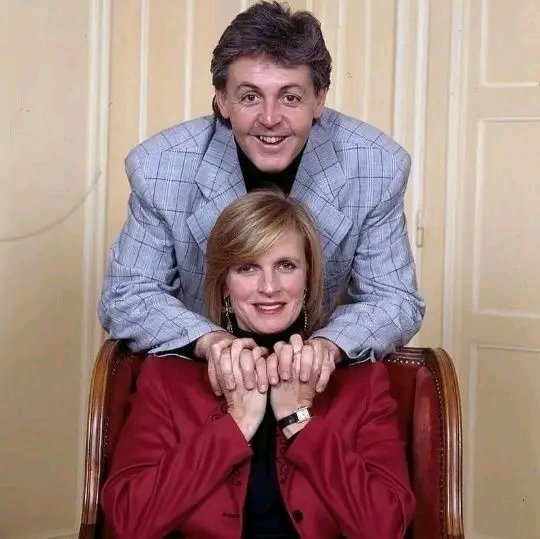“You Put Up with It Because You Love Him”: Linda McCartney on Marriage, Love, and the Struggle for Female Freedom in the 1980s
In a candid and heartfelt interview with Diamond Hard Music Entertainment during the 1980s, Linda McCartney opened up about her philosophy on marriage, delivering a rare blend of emotional honesty, feminist insight, and personal wisdom shaped by her life as a wife, mother, and artist. When interviewer Karen Fox asked her about the secret to a happy marriage, Linda’s answer went far beyond romance or fleeting chemistry—it was about care, endurance, and mutual respect.
“When you love each other, you have a happy marriage because you care enough to work through the issues,” Linda explained. Her perspective rejected the idea of perfection and instead embraced the reality of partnership. She acknowledged that moods shift, tempers flare, and people falter, but love—real love—is what makes you stay and try again. “If one of you is in a bad mood one day, you put up with it because you love him,” she said. In her world, the small, daily accommodations born out of affection were the glue that held relationships together.
But Linda didn’t stop there. With fearless clarity, she addressed a dynamic that many were hesitant to speak about at the time—the unequal burden placed on women in marriages. “Men in marriages— and I’m not talking about my marriage—come out much better,” she said pointedly. Her tone was neither bitter nor dismissive, but it was undeniably critical of the social structures that turned women into unpaid caretakers and emotional managers. She gave voice to the reality many women lived: being reduced to cooks, cleaners, and submissive partners. Her observation—“‘I’ve got a bit of dirt on my shirt, darling’”—was more than casual banter; it was a metaphor for how men often relied on women to hold their lives together.
Linda’s critique went even deeper, touching on the generational chains that bound women. “Women are often repressed in marriage. Their fathers still dominate them; then they get married and let their husbands dominate them. It’s terrifying.” Her insight exposed the painful cycle of patriarchy that many women never escaped. The image of women unable to make personal choices—even about their diets—because of male disapproval underscored how deep this control ran. “Many women say, ‘I’d like to be a vegetarian, but my husband would never let me,’ and you think, ‘Oh my God, how sad!’” Her voice was one of empathy, but also alarm, as she reminded the world that abuse and repression were still widespread.
Yet for all her sharp critique, Linda concluded her thoughts on marriage with a metaphor rooted in her love of horses. “I believe in a free rein. As a horse rider, I also believe in tightening the reins and giving them a little slack.” She likened successful marriage to mastering that delicate balance—of control and freedom, connection and independence. “I’ve grasped that art, being so horse-oriented,” she smiled, turning wisdom into a personal narrative.
Linda McCartney’s reflections from the 1980s continue to resonate today, standing as a powerful reminder that love and equality must go hand in hand. Her voice—compassionate, honest, and quietly radical—championed not just marriage, but freedom and dignity for all women who chose to love without losing themselves.
